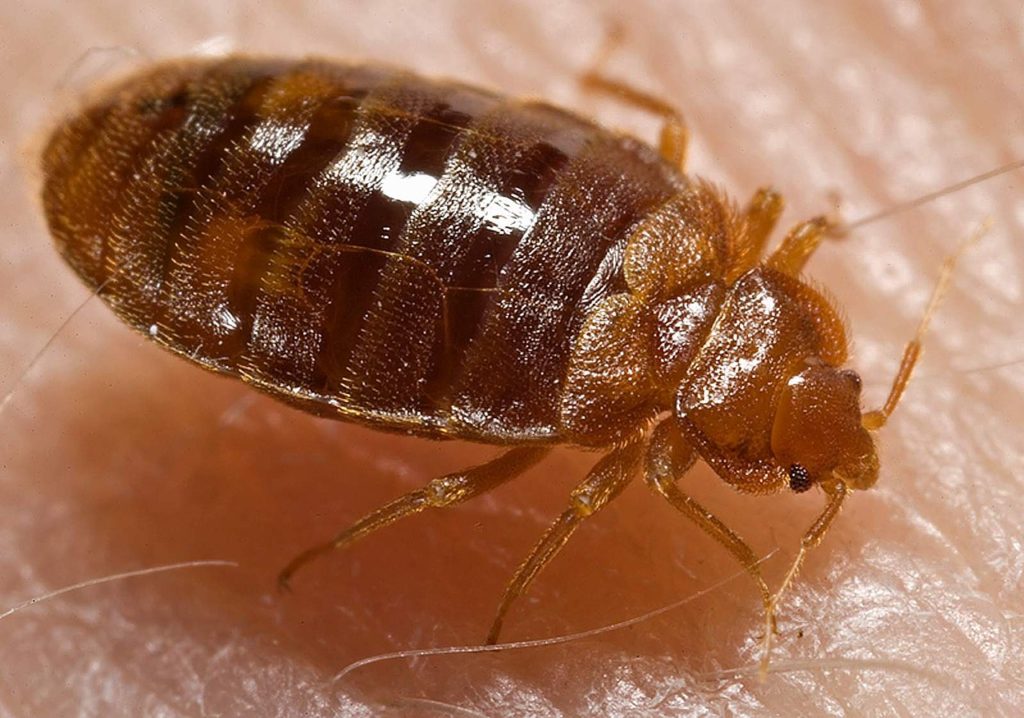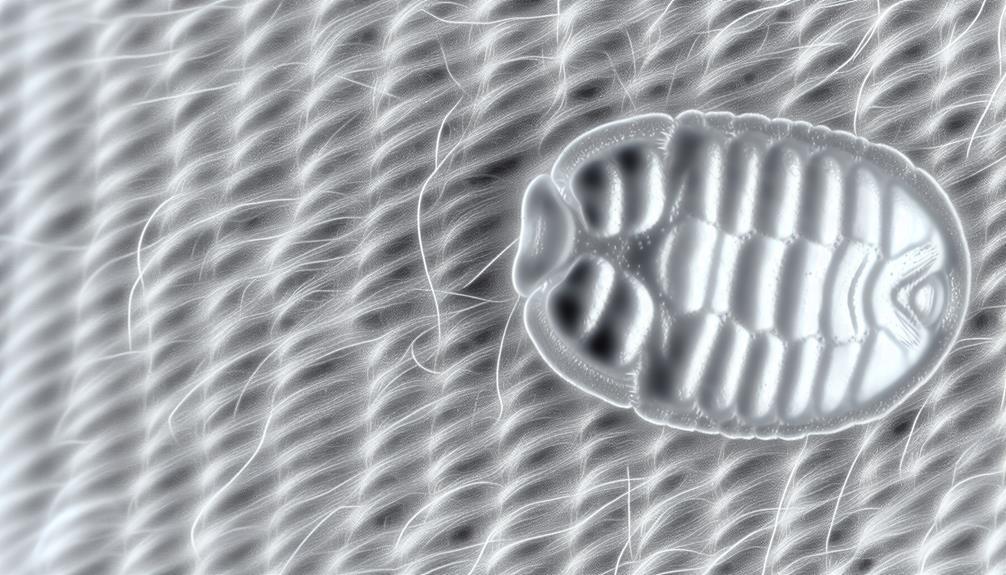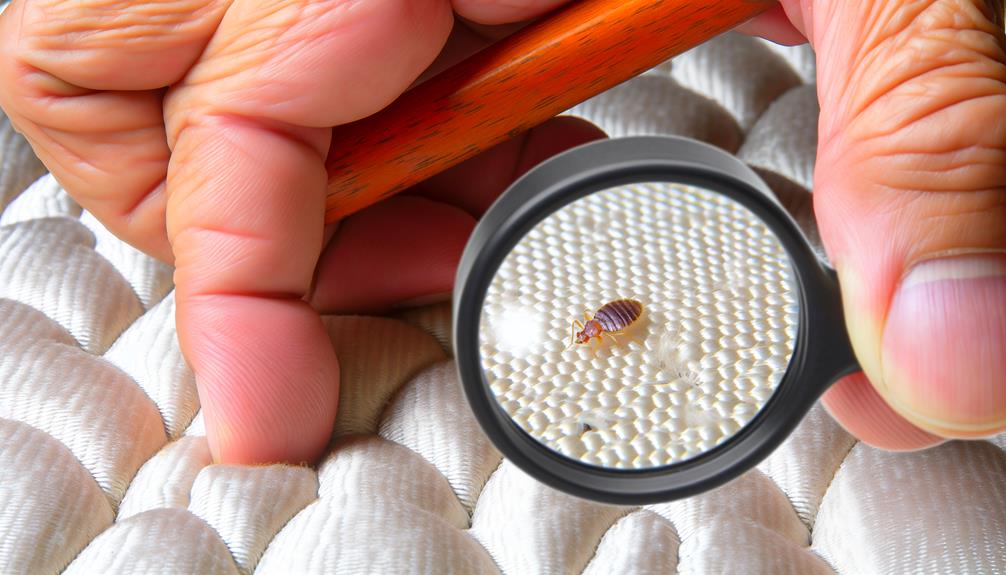Do Bed Bugs Stay on Your Skin After a Shower
After a shower, you might wonder if bed bugs linger on your skin. The post-shower environment can be enticing for these pests due to warmth and CO2 emissions. While they typically prefer dry areas, severe infestations could lead to temporary skin encounters. But what happens next? Understanding their behavior and potential risks is essential. Stay tuned to learn more about how to prevent bed bugs from lingering on your skin post-shower.

Key Takeaways
- Bed bugs may stay on skin post-shower seeking warmth.
- They are attracted to body heat and can latch onto skin.
- Skin infestation can lead to skin irritation and allergic reactions.
- Regular skin hygiene can help prevent bed bug infestations.
- Inspecting and cleaning living spaces reduce risks of infestation.
Bed Bugs and Skin Contact
When you come into direct contact with bed bugs, they can easily latch onto your skin, potentially leading to bites and discomfort. Bed bugs are known to feed on human blood, causing skin reactions in the form of red, itchy welts. These bites can trigger allergic responses in some individuals, resulting in more severe symptoms such as swelling and blisters.
The transmission risks associated with bed bugs aren’t limited to physical discomfort; these pests can also pose significant health concerns. Scratching the bites can lead to secondary skin infections, and in rare cases, bed bugs have been implicated in transmitting certain diseases.
It’s important to address any bed bug infestations promptly to prevent skin reactions, allergic responses, and potential health risks. If you suspect bed bugs have come into contact with your skin, it’s advisable to seek professional pest control and bed bug extermination services to mitigate these concerns effectively.
Can Bed Bugs Survive Water?

Bed bugs have the ability to survive water immersion for a limited period due to their unique physiological adaptations. Their survival abilities are remarkable as they possess a level of water resistance that allows them to endure temporary exposure to water. While bed bugs prefer dry environments, they can withstand wet conditions for short periods without immediately perishing.
This capability is linked to their outer cuticle, which acts as a protective barrier against water loss. Additionally, bed bugs have specialized respiratory openings called spiracles that can be closed to prevent water entry, enabling them to survive in moist settings temporarily. However, extended exposure to water can still be detrimental to bed bugs, leading to eventual drowning.
Thus, while bed bugs can withstand water for a limited time due to their water-resistant adaptations, prolonged exposure to moisture remains a threat to their survival.
Behavior After a Shower
Following exposure to water, bed bugs exhibit distinct behavioral changes in response to the moisture, which sheds light on their survival mechanisms in wet environments. Post-shower, bed bugs typically seek out dry areas to escape the dampness. These pests are known to be attracted to warmth and carbon dioxide, prompting them to hide in cracks and crevices near your resting areas.
Bed bugs may also become more active after a shower, as the humidity can stimulate their movement and feeding behaviors.
Maintaining good skin hygiene is essential to minimize the likelihood of bed bugs latching onto you post-shower. Thoroughly drying yourself with a clean towel and changing into freshly washed clothes can help reduce the risk of bed bugs finding a suitable environment to settle on your skin.
Additionally, inspecting your bedding, furniture, and surroundings for any signs of bed bugs can aid in preventing infestations after showering. By being proactive in your post-shower habits and maintaining a clean environment, you can effectively deter bed bugs from lingering on your skin.

Risks of Skin Infestation
The importance for skin infestation by bed bugs post-shower is a significant risk due to their attraction to warmth and moisture. Bed bugs are opportunistic pests that feed on blood, and they’re drawn to body heat and perspiration, making the skin an ideal location for them to thrive. Skin infestation by bed bugs can lead to various issues such as skin irritation and allergic reactions resulting from bed bug bites. These bites often appear as red, itchy welts on the skin and can cause discomfort and distress.
Maintaining good skin hygiene is essential in preventing skin infestation by bed bugs. Regularly washing your body with soap and water can help remove any potential bed bugs that may have come in contact with your skin. Additionally, keeping your living space clean and clutter-free can reduce the likelihood of bed bug infestations.
Tips for Prevention
To prevent skin infestation by bed bugs after a shower, implementing effective prevention strategies is vital for maintaining a pest-free living environment. When it comes to bedding protection, regularly inspect and clean your sheets, blankets, and pillowcases to reduce the chances of bed bug infestations. Using mattress covers can act as a physical barrier, preventing bed bugs from accessing your mattress and hiding within its crevices.
Insect repellents can also be useful in deterring bed bugs from coming into contact with your skin. Look for repellents specifically designed to target bed bugs and apply them as directed to potentially infested areas.
Maintaining good cleaning routines is essential. Vacuum your carpets, rugs, and furniture regularly, paying close attention to cracks and crevices where bed bugs may hide. Launder your clothes, bedding, and curtains in hot water and dry them on high heat to kill any potential bed bugs or eggs.
@ 2025 by Pest Control Modesto Today